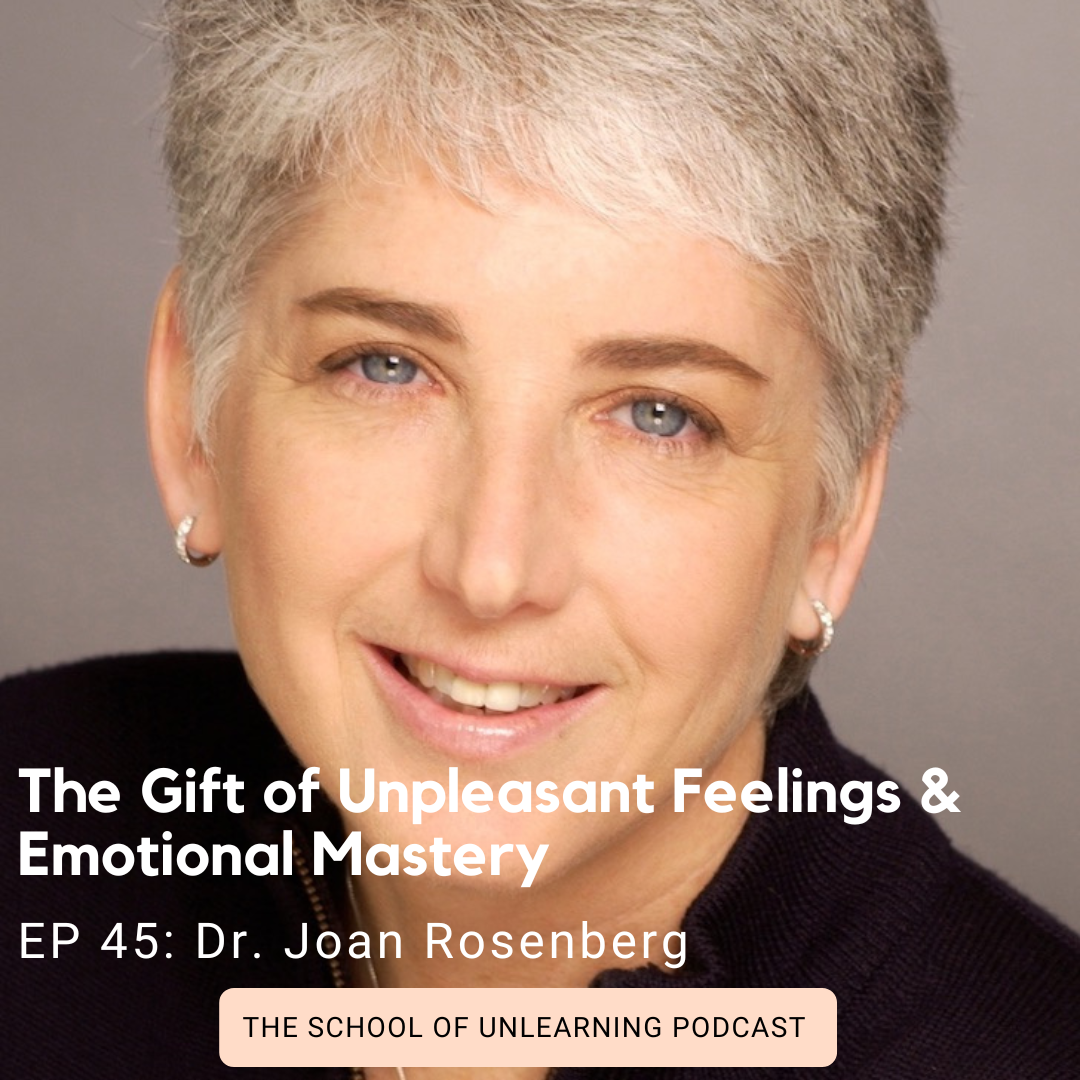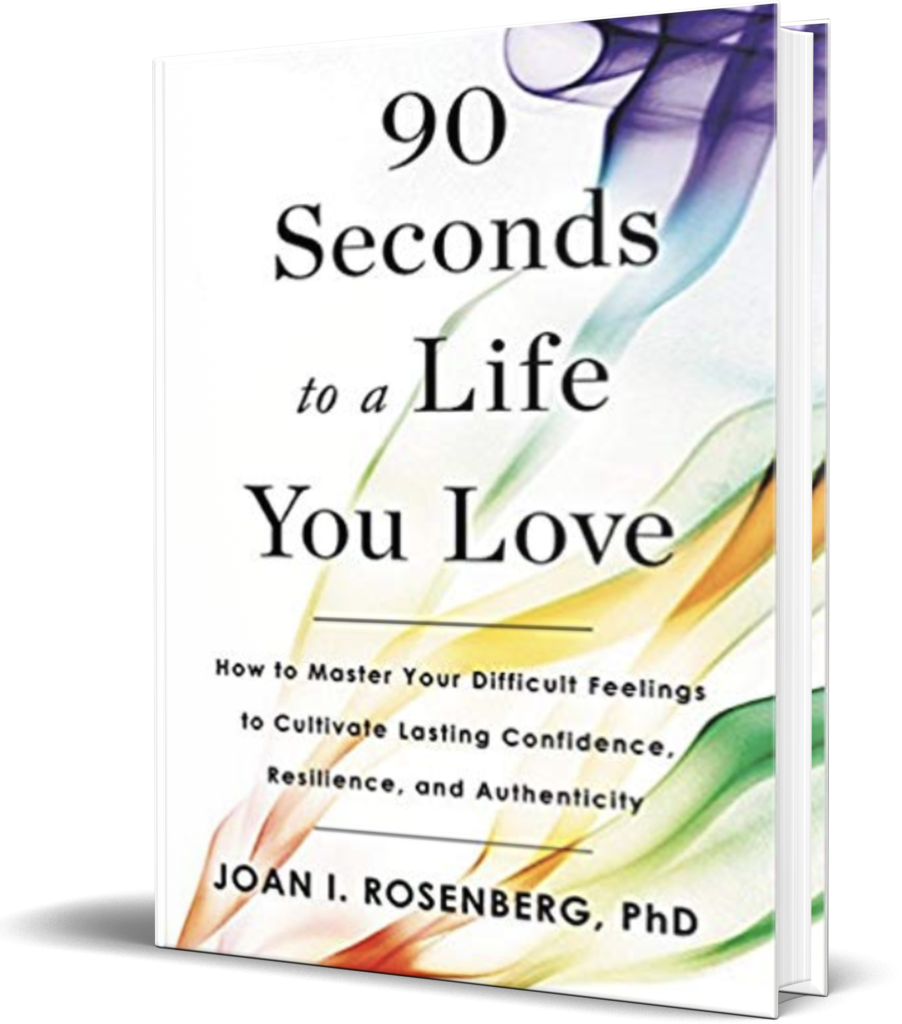EP45: The Gift of Unpleasant Feelings & Emotional Mastery with Dr. Joan Rosenberg
THE SCHOOL OF UNLEARNING PODCAST WITH ELISA HAGGARTY
Episode Description
Dr. Joan Rosenberg, the author of "90 Seconds to a Life You Love" joins us for episode 45 and shares part of her personal journey from childhood that inspired her to pursue emotional mastery. The desire for confidence, authenticity and belonging lies within our capacity to sit with both pleasant and unpleasant emotions and Joan Rosenberg PhD teaches us how to do that in this episode. We review the Rosenberg Reset which lays out the steps towards emotional confidence and why congruence is so essential to our wellbeing. This podcast episode is ripe with insight, moments you won't want to miss and will leave you feeling more empowered to live life more fully.
Joan I. Rosenberg, PhD, creator of Emotional Mastery™ and Emotional Mastery Training™, is a highly regarded expert psychologist, master clinician, trainer and consultant. As a cutting edge psychologist who is known as an innovative thinker, trainer and speaker, Joan has shared her life-changing ideas and models for emotional mastery, change and personal growth in professional and educational seminars, psychotherapy sessions and graduate psychology teaching.
Show Notes
In this episode, you will learn:
Dr. Rosenbergs early childhood and how it shaped her sense of belonging
Why emotional confidence was something Dr. Rosenberg realized early on in life would help her wade through life’s ups and downs
Who her early influences were
The 90 second rule of emotions
How we can make use of feelings and emotions
Why pleasant feelings/sensations are difficult to sit with
How we can practice the Rosenberg Reset to master unpleasant feelings
What type of pleasant feelings are difficult for people and why
What a compliment really means and why it’s important to accept them
Grief and 3 recommended practices to work with it
The importance of congruence in our inner and outer worlds
Why speaking up is the pathway towards emotional confidence
How and when Dr. Rosenberg recommends we speak up
Why insights usually follow expression
Grief: how to embrace the relationship even if the person has passed on
Referenced:










